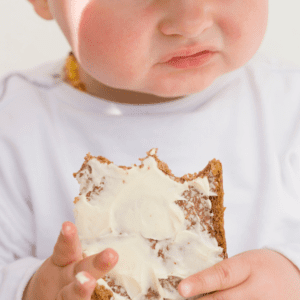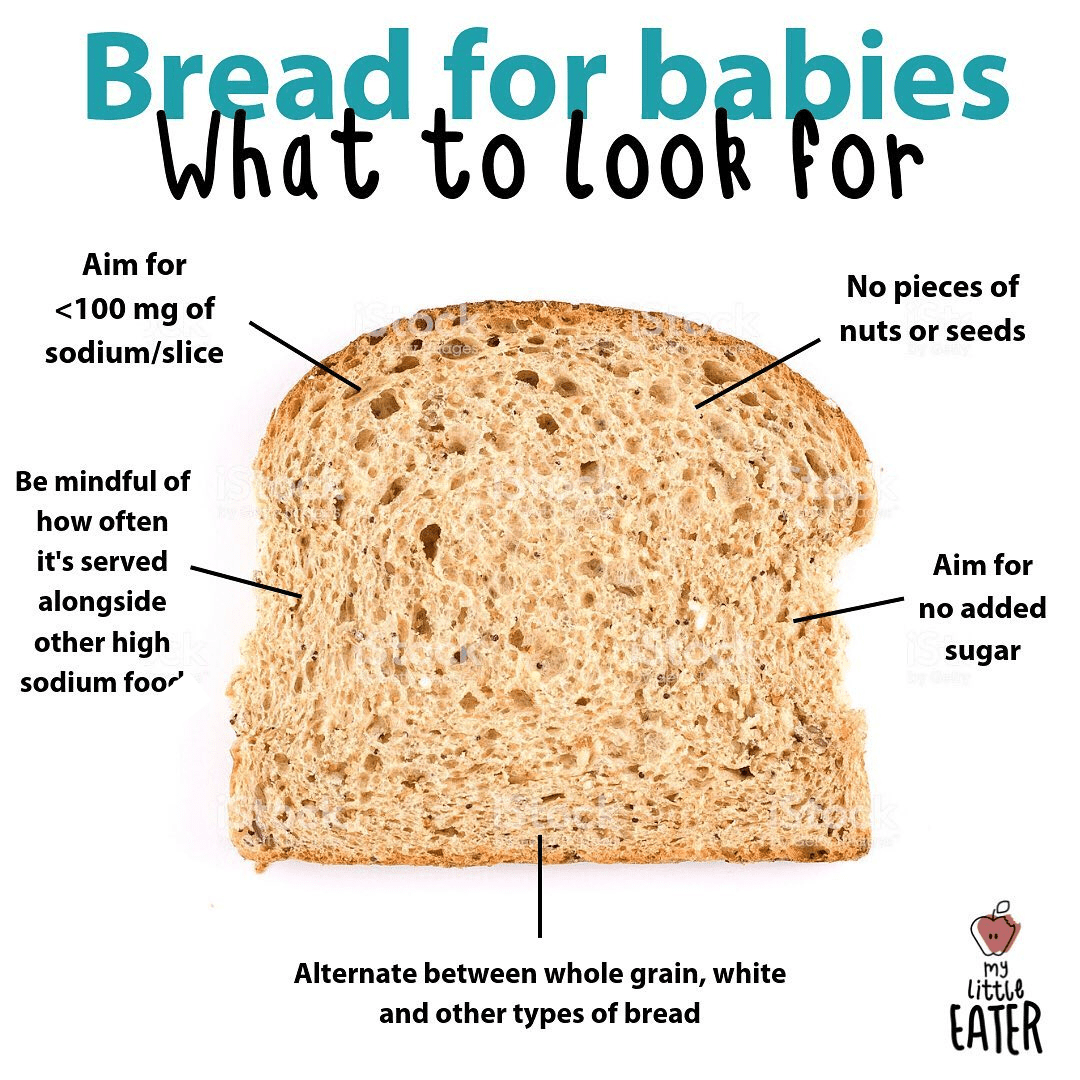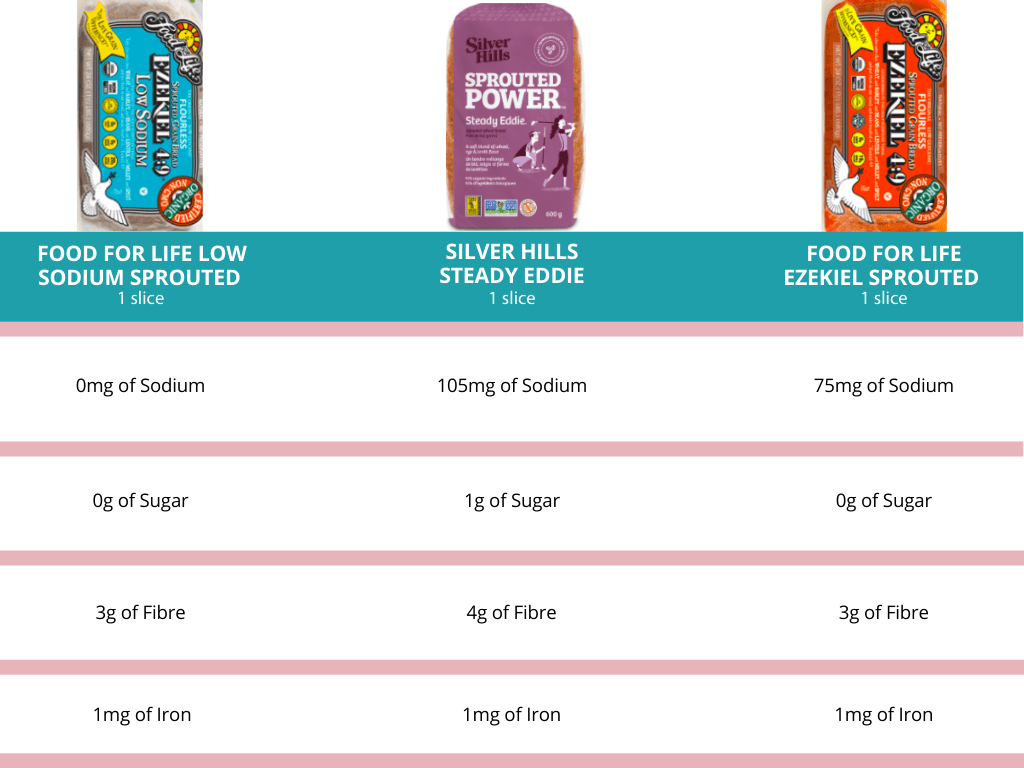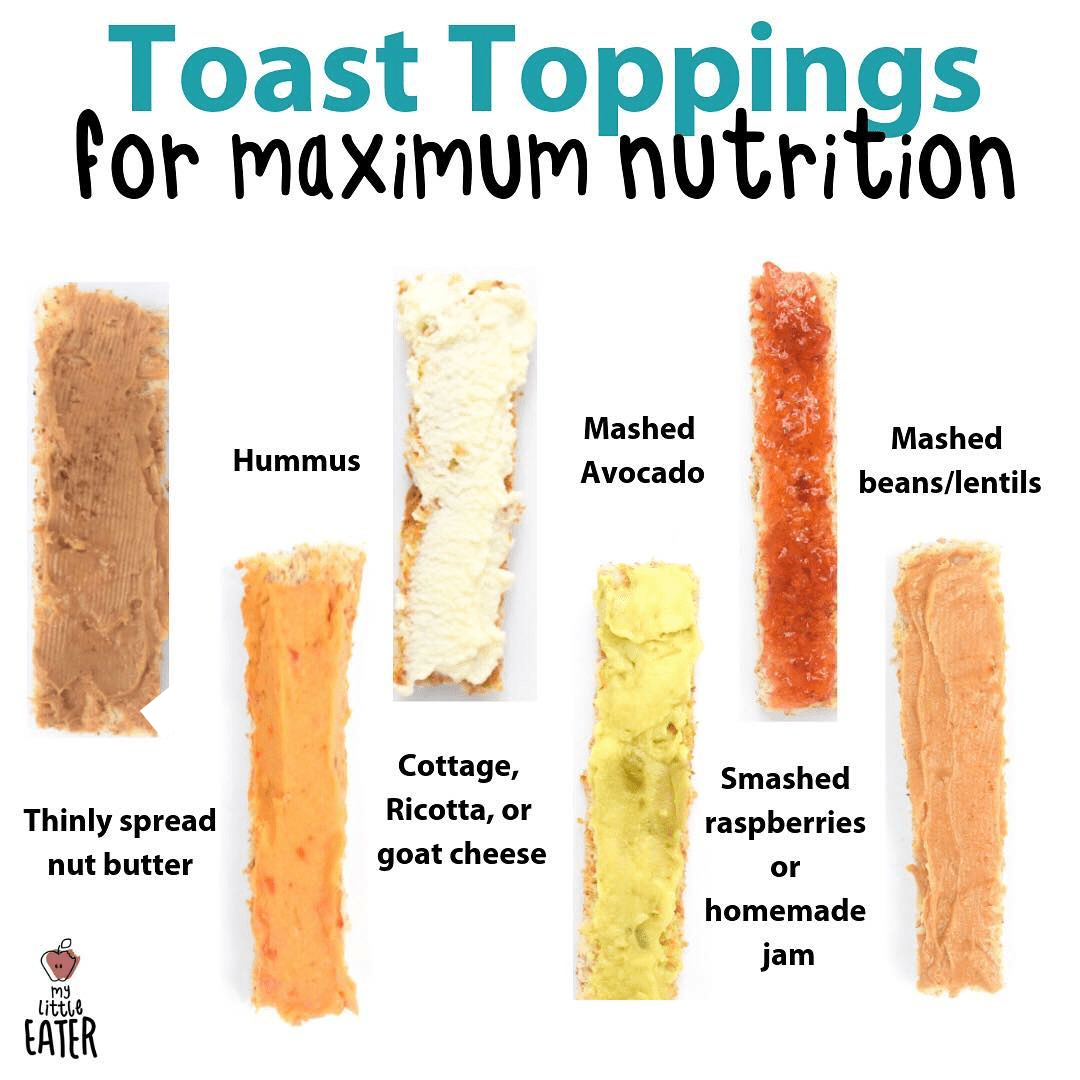What Age Can Babies Have Cheese on Toast

Bread is just one of those foods – it's delicious, comforting, and goes well with just about anything. So naturally, some of the most frequently asked questions I get from parents are around whether or not bread is ok for babies! There are tons of things about bread that make it a great choice for babies, and it can be an easy way to include some important nutrients in their diet. If you're starting to introduce solids and are diving right into baby led weaning, bread can be an easy vehicle to introduce other foods like nut butters or one of my favorite first solid foods – avocado. Needless to say, bread shouldn't be under played!
It can be confusing to know what age you can serve bread, how to serve bread safely, and what the best brand of bread for babies is. There's definitely no shortage in the variety of brands, and types of breads, out there in the supermarket. So, let's cut to the chase and I'll spell out everything you need to know about bread for your baby!
When can I introduce bread to my baby?
You can start introducing bread to your baby around 6 months of age, or as soon as they've started eating solids. There's no reason to hold back on it as long as it's done properly! Bread is actually one of the top 6 finger foods I recommend as a first food, and can work really well if you're diving right into baby led weaning.
Since bread does contain wheat, it's considered one of the highly allergenic foods, and even though introducing highly allergenic foods early is recommended, it's important to watch for any symptoms that may indicate an allergic reaction. I have a blog post that covers the top 10 highly allergenic foods, and it goes into more detail about introducing these foods and how to do it safely. So if you're starting soon, this is a great resource to help prepare!
Best types of bread for baby
With an abundance of breads on the market, I know it can feel like you have no idea what you're even looking for when you're picking one out. Really, there's no bread that's unsafe when it comes to the main flour type. All bread types like white, whole wheat, pumpernickel, sourdough, and rye can be varied in their diet to expose them to different flavours and increase their chances of becoming an adventurous eater in the long run! Sourdough is an all time favourite of mine, because it isn't as processed as other breads, which makes it easier to digest. And another bonus is: it lacks all the added sweeteners and preservatives that other breads can have.
Sprouted whole grain breads are the best choice nutritionally, because they have limited preservatives like sugar and sodium, and they're a better source of B vitamins (breads that have processed flour must be fortified with these in Canada and the US), magnesium, fibre, and protein. Breads that have been processed like most of the commercial breads available today, have the outer shell of the grain removed which unfortunately removes a lot of the nutritional benefits. Unlike processed wheat flours, sprouted grain flours are sprouted before they're ground down. This makes all the nutrients more readily available and easier to digest so your baby can absorb them more!
Typically, breads that are advertised as sprouted grain are usually a safe bet because they're notorious for having low to no sodium, or added sweeteners. Whole wheat can be another great option, though there isn't a need to focus on whole grains as much as it's needed for adults. Although fibre is always great, sometimes too much can cause babies to fill up fast and leaves little room for other foods. If you really want to include a type of bread that happens to have a higher fibre content, just alternate it throughout the week with a lower fibre option, so it doesn't cause any tummy upset and bloating.

Things to look for:
Limited/no sodium
The sodium content is really important here because when we look at the recommendation for sodium in a baby's diet, it's only 400mg per day up to 12 months of age, with approximately 200mg coming from breastmilk or formula. So that only leaves 200mg, roughly, coming from solids in the diet. And believe it or not, a lot of bread provides that (sometimes more) in just one slice! When you're looking at different breads, try to find a variety that has under 100mg per serving, or less, if at all possible.
Limited/no added sugars & sweeteners
Added sugars and artificial sweeteners are definitely something you want to avoid when picking out bread. Most breads contain yeast to help them rise and become full once cooked, and yeast does require a "food source" to be able to achieve this – typically it's sugar! But healthier options will often only use the amount of sugar needed for this, and not for added sweetness. My recommendation is to aim for 2 g sugar or less per serving.
Things to avoid:
Large seeds or nuts
Try to avoid any bread that has whole or large seeds, like pumpkin seeds or sunflower seeds, on the crust, or mixed into the bread, as these can pose a choking risk. If the best option you can find does have seeds on the crust, scrape the seeds off or remove the crust before serving. Seeds like chia, hemp, or flax seeds are small, and safe for babies, so no need to worry about those.
Honey as an ingredient
Honey is dangerous for babies under 12 months of age because it's unpasteurized and can have spores of bacteria that can cause infant botulism. And since their immune systems are still developing, it can put them at risk for any food pathogens that could be present. You need to be really careful about checking the ingredient list for honey, as it tends to be used in a lot of breads to add sweetness.
Top brand recommendations
Finally, let's take a look at some of the top contenders that are all great options for your baby! Below I've compared some of the most popular brands that are nutritionally the best when it comes to purchasing bread from the supermarket.

Unfortunately, most of these options do run on the more expensive side since they're organic and recognized as a healthier choice, depending on where you live. But since your baby is just getting into the realm of solids, they likely won't eat much anyways, and this will keep the cost down. These options are just my suggestions but by no means are they the only options out there! No bread is 100% perfect, and it's all about whatever works for your family in the long run!
How to serve bread
The key thing to know about when it comes to bread for babies is that fresh, uncooked bread can be gummy, chewy, and stick to your mouth, making it hard to swallow. This is why it's classified as a choking hazard for babies, especially since they're still developing their oral motor skills. To help prevent choking, the best way to serve bread is lightly toasted. Toasting it makes it slightly firm, which is also easier for self feeding. As your baby gets a bit older (around 18 months+) and develops better oral motor skills, you can consider offering un-toasted bread to them (in a sandwich for example!).
It's hard to give a definitive "toast time" given each individual bread will toast differently, but I've included a demo of what texture you should look for to help ease any worries you have!
When serving it, you'll want to cut it into long finger shapes, or if your baby has pincer grasp, you can cut it into 1" pieces that your baby can pick up with their thumb and forefinger. In order to keep it from being too dry for your baby to eat, I always recommend spreading a nutritious topping onto it that also will benefit your baby by adding extra nutrition, iron, fat, and calories.
Some topping options are:
- Butter or Ghee – Grass fed is always a nice choice if you can afford it, otherwise, regular is fine as well!
- Mashed avocado – Rich in healthy fats, which can help with proper brain development!
- Mashed beans & lentils – Iron rich to help your baby meet their iron requirements! This is also a great way to include beans in their diet until they master their pincer grasp. For added iron absorption, squeeze a bit of lemon juice on top of the bean mixture.
- Mashed eggs mixed with Greek yogurt – A meal in and of itself! Full of calories, fat, iron, and protein! Since wheat and eggs are both allergenic foods, only serve this once you know for sure there's no allergy to wheat first.
- Peanut/nut butter – Spread the nut butter thinly on the bread as large amounts of nut butter is a choking hazard! As with eggs, make sure you're certain there's no allergy to wheat before adding in a second allergen.
- Mashed berries – Add sweetness without any artificial or processed sweeteners!
- Full fat yogurt or cottage cheese – Dairy is an allergenic food, so again, serve only after clearing wheat as an allergy for your baby. Tip: watch for sodium content in cheese if using as a topping!
- Hummus – Such an easy addition that's a great calorie add-on and can come in many different flavors!

So there you have it…the lowdown on bread for babies!
If you're questioning how to properly introduce all sorts of foods to your baby safely, taking into account textures, allergens, flavours, the whole gamut… rest assured I have you covered inside my Baby Led Feeding online course! I show you videos of how to serve ALL types of foods, and make it easy for you to feel confident in the whole process! Join thousands of parents who have graduated from the course, achieved peace of mind, and have happy and stress free mealtimes with their baby.
What Age Can Babies Have Cheese on Toast
Source: https://mylittleeater.com/all-about-bread-for-babies/